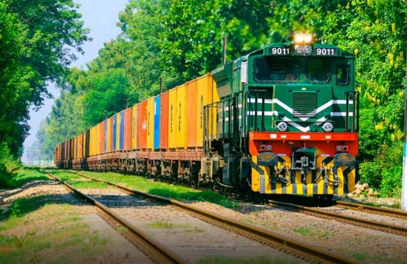آئی این پی ویلتھ پی کے
Basit Ali
The Pakistan Railways (PR) is moving toward digital freight solutions under a new partnership with the Punjab Information Technology Board (PITB), aiming to improve logistics performance and support energy-related cargo movement.

Talking to WealthPK, Ali Raza, Director of Information Technology at the Pakistan Railways, said the collaboration is playing a vital role in modernizing freight operations to meet Pakistan’s growing energy logistics needs. He said the PITB is helping the Pakistan Railways in developing key systems such as the online freight booking platform, rolling stock tracking, and the Rapta mobile application, which will allow better scheduling and visibility across the freight network.
He explained that real-time geo-mapping and digital inspection systems are also being introduced to ensure timely maintenance and fewer operational delays, especially in freight corridors critical for transporting energy resources like coal and oil. He emphasized that a five-year IT roadmap has been designed to ensure these freight systems are not only developed but also sustained by the Pakistan Railways’ own trained workforce in future.
He added that the MoU signed with the PITB follows a government-to-government (G2G) model, under which the PITB acts as the core technology partner for software, data centres, and cloud services, enabling Pakistan Railways to move toward a digitally self-reliant freight and energy logistics system. He further noted that digitization is essential to reduce the Pakistan Railways’ reliance on manual systems, which often cause delays and revenue leakages. Digital systems will bring transparency and make freight transport more efficient and competitive.
Given the significance of energy transport in freight modernization, WealthPK also sought input from Afia Malik, an energy expert at the Pakistan Institute of Development Economics (PIDE). She said for decades, the rail freight in Pakistan has struggled with outdated practices like manual scheduling and paper documentation, making it less competitive than road transport. She emphasized that digitization can enable real-time monitoring of trains, allowing logistics companies to optimize routes, reduce idle time, and enhance coordination with terminals and warehouses.
She explained that rail has historically played a crucial role in transporting energy sources such as coal and oil in Pakistan. However, delays and inefficiencies have led to a loss of market share to road transport. She stressed that the system must now focus on improving freight efficiency by addressing revenue leakages and streamlining scheduling processes to reduce delays.
Aafia pointed out that a digitally modernized rail system offers benefits beyond just improved freight efficiency. It lays the groundwork for better governance, reduced costs, and a more competitive transport mode. She added that digitization tools, such as online freight bookings and GPS tracking, will enhance operational efficiency in Pakistan Railways, thereby improving logistics and public service delivery.
Credit: INP-WealthPk












